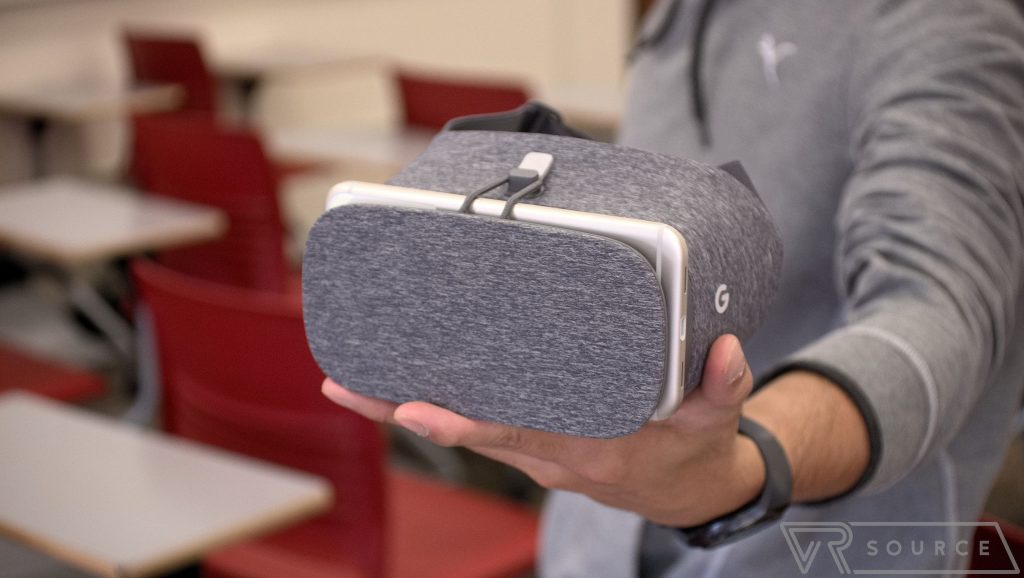Affiliate links on Android Authority may earn us a commission. Learn more.
Google is making an AR headset to compete with Apple and Meta
Published onJanuary 20, 2022

- Google is reportedly working on an AR headset to compete with Apple, Meta, and Microsoft.
- Codenamed Project Iris, the headset will run on custom Google silicon and will not require a tethered connection to a power source.
- Google hopes to ship the device in 2024.
Google has a long history with AR and VR headsets, and it looks like added pressure from companies like Meta and Apple are pushing Google to take things more seriously. According to The Verge, Google is building a consumer-focused AR headset to do exactly that.
Internally codenamed Project Iris, Google’s in-development headset uses outward-facing cameras to blend computer graphics with a feed of the real world. It doesn’t require a tethered connection to a power source. To assist with processing power, Google supposedly plans to use data centers to remotely render graphics and send them to the headset via an internet connection.
Project Iris will be powered by custom Google silicon, just like the company’s Pixel 6 smartphones. Google supposedly has some of the Pixel team working on the headset at the moment, with a total of 300 people working on the project altogether. It’s still in the early development process, so there’s no word if this will be a Pixel-branded headset or not.
Also read: What’s the difference between AR and VR?
Early prototypes of the headset reportedly resemble a pair of ski goggles. The headset will also run Android, or at least a version of Android built specifically for AR headsets.
Google’s Clay Bavor is heading up the project. You may recognize his name from projects like Google Cardboard, Daydream, and, more recently, the big Project Starline demo that was shown off at Google I/O 2021. The Verge reports that Google hopes to ship Project Starline and Project Iris together in 2024. Considering that’s just two years away, and all indication points to Iris still being in the early development process, shipping in 2024 might be a bit too lofty a goal for the company to pull off.
It’s still unclear what the target use cases would be for Project Iris, though Google is clearly trying to keep up with Meta, Apple, and other major companies investing in the AR space.